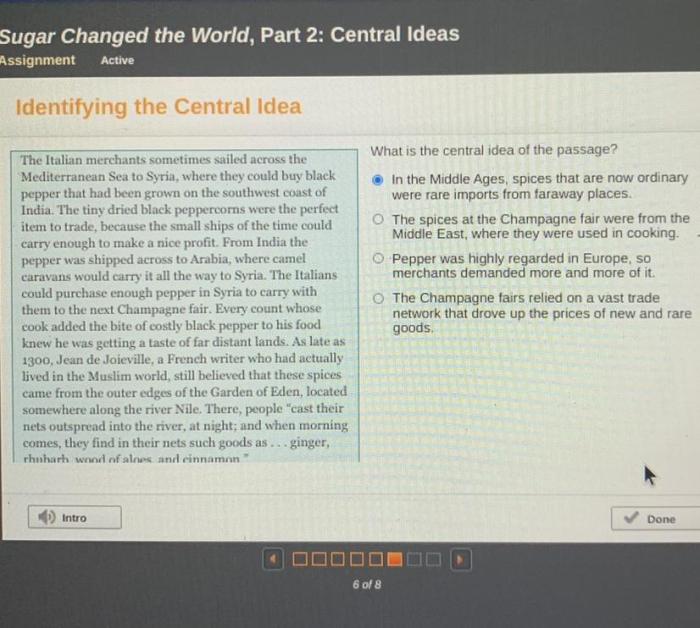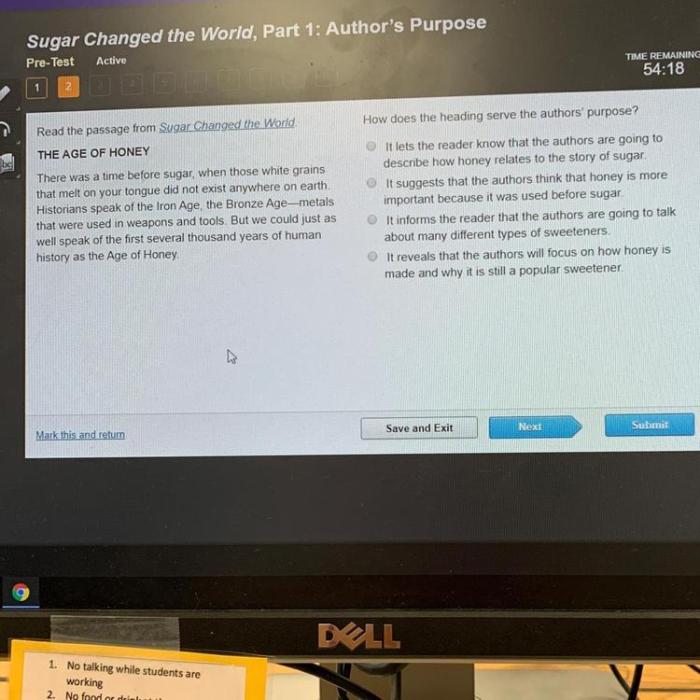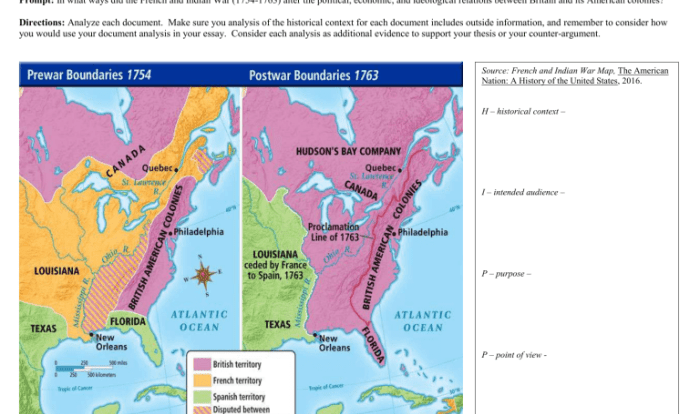Sugar changed the world part 2 central ideas – Sugar Changed the World: Exploring the Profound Impact of a Sweet Commodity, delves into the multifaceted history and global influence of sugar, unveiling its pivotal role in trade, slavery, culture, technology, health, and beyond.
From its origins as a luxury item to its widespread use as a sweetener, sugar has left an indelible mark on human civilization, shaping economies, societies, and even our own bodies.
Sugar’s Role in Global Trade and Commerce

Sugar has played a pivotal role in shaping global trade and commerce throughout history. As a highly valuable commodity, it has driven the establishment of trade routes and the rise of sugar plantations in various regions.
During the 16th and 17th centuries, European powers established sugar plantations in the Caribbean, Brazil, and other tropical areas. These plantations became major centers of sugar production, and the sugar trade became a lucrative business for European merchants.
The demand for sugar led to the development of the transatlantic slave trade, as African slaves were forced to work on sugar plantations in harsh conditions. The sugar trade also played a significant role in the economies of major European powers, such as England, France, and the Netherlands.
Major Sugar-Producing Regions and Their Impact on Global Trade, Sugar changed the world part 2 central ideas
- Caribbean: The Caribbean region was one of the largest sugar-producing regions in the world during the 17th and 18th centuries. Sugar plantations in the Caribbean were established by European powers, and the sugar trade played a major role in the economies of these colonies.
- Brazil: Brazil emerged as a major sugar producer in the 16th century. The Portuguese established sugar plantations in Brazil, and the sugar trade became a major source of wealth for the Portuguese Empire.
- India: India has been a major sugar producer for centuries. Indian sugar was exported to various parts of the world, including Europe and the Middle East.
Expert Answers: Sugar Changed The World Part 2 Central Ideas
How did sugar contribute to the development of slavery?
Sugar plantations in the Americas relied heavily on enslaved labor, leading to the forced migration and exploitation of millions of Africans.
What were the major technological advancements driven by the demand for sugar?
The sugar industry spurred innovations in sugar mills, refining processes, and transportation methods, contributing to the development of steam engines and improved infrastructure.
How has sugar consumption impacted global health?
Excessive sugar intake has been linked to chronic diseases such as obesity, diabetes, and heart disease, prompting concerns about public health and dietary guidelines.


